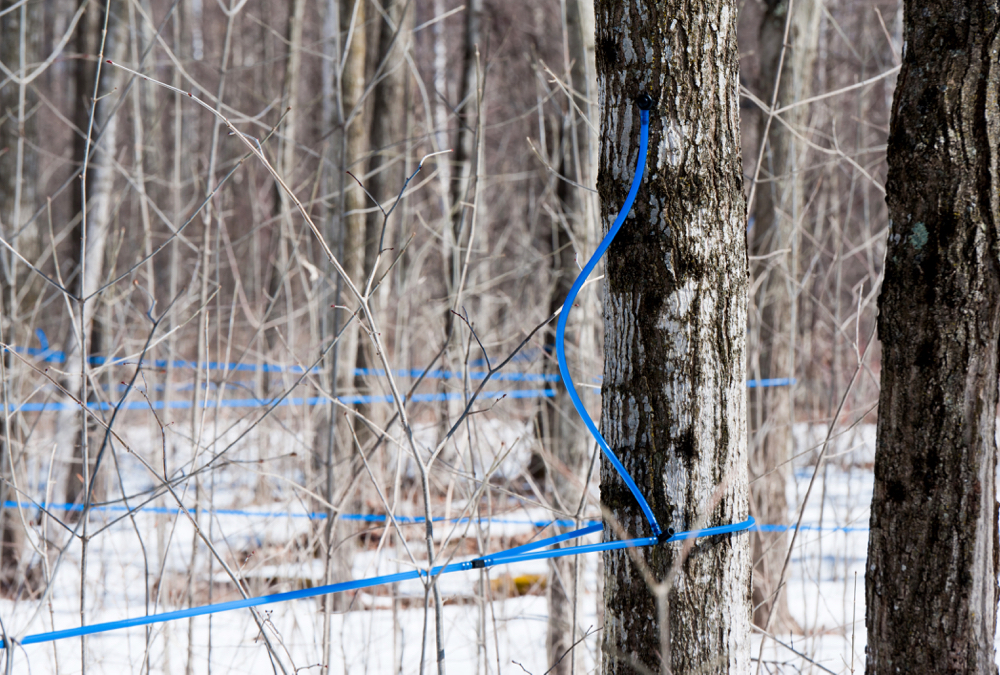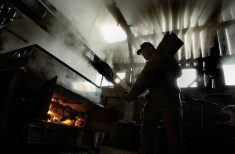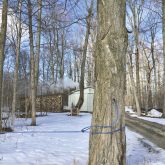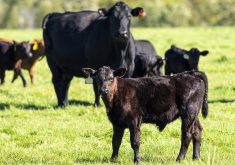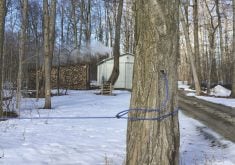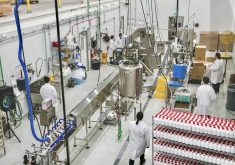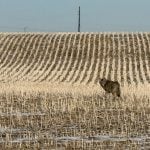
Earl Stanley, owner of Stanley’s Olde Maple Farm in Edwards, Ont., says 2020 was looking to be a great year for his business as the first two weekends of March brought larger-than-normal crowds for the farm’s pancake breakfasts.
Syrup production in 2020 was also looking good across the province with sap in good quantity, high quality and easy to filter, says John Williams, executive director with Ontario Maple Syrup Producers Association.
But the COVID-19 pandemic has forced producers to close their pancake houses and other aspects of their businesses that draw large crowds.
That’s meant they have had to be creative with new ways of marketing their syrup.
Read Also
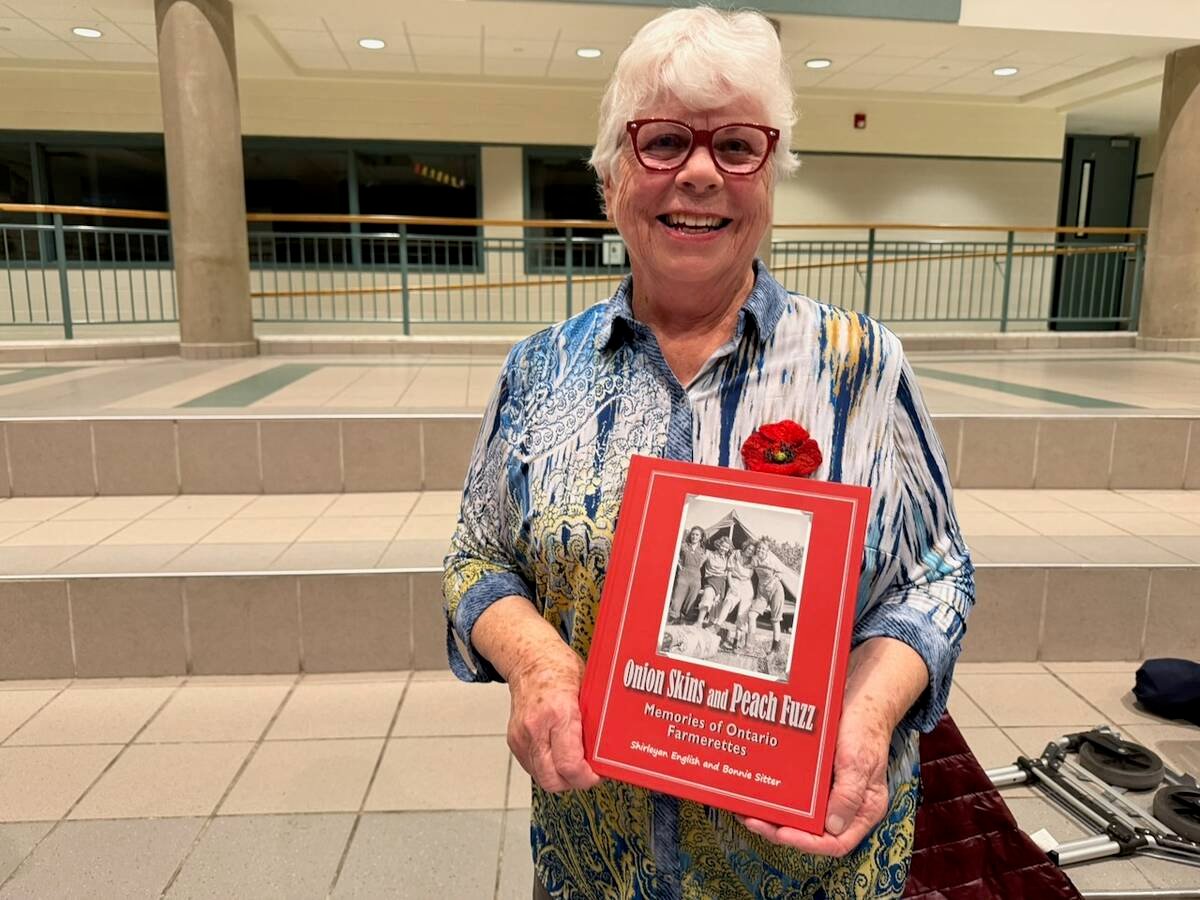
Women who fed a nation
More than 40,000 young women supported the war effort between the 1940s and early 1950s, helping grow and harvest crops amid labour shortages. They were called Farmerettes.
Why it matters: The COVID-19 pandemic has brought a halt to many agriculture markets, leaving producers scrambling to develop innovative new ways to market their products.
“The fact that we can’t interact with people, whether that is through business and the farm, or at festivals, that is going to hurt our sales,” says Williams.
The Elmira Maple Syrup Festival and others including the Belmore Maple Syrup Festival, which draw tens of thousands of people to celebrate maple products and community were cancelled.
The more syrup producers rely on the direct consumer interaction, the more it is going to hurt them, says Williams.
March 16 was one of the hardest days for Stanley in his 28 years in business.
“All my staff were excited with what we were doing; we were making great syrup. People were coming and buying and that is what we are here for. Then all of a sudden, I got a whole new outlook on life,” says Stanley.
Not only is the farm sitting on inventory of syrup but also sausage, ham, baked beans and everything else they serve with their weekly breakfasts.
“I have 4,000 to 5,000 people a weekend through the farm. I have been told not to be open. So I have tasked my staff with coming up with other ways to market the products.”
A conference call was held with fellow Ottawa-area sugar bushes and collectively they agreed to close their pancake house doors and will individually work on new opportunities while not stepping on each other’s toes.
“We are not going to have a whole lot of people walking our grounds, but we will try and salvage what we can.”
Stanley Olde Maple Farm has kept its gift shop open on restricted hours and created take-home breakfast meals to get rid of inventory.
“We have baked beans, sausage etc., that we would normally serve here, available to customers to pick up at our gift shop. We are going to push everything we can to add value to what we are doing.”
During a time like this, consumers should try to buy local, says Stanley.
The sales of the first day of take-home breakfast meals on March 21 was a hit for the family.
“We did about a third of sales compared to a normal day, but we were only open three hours instead of the normal six.”
They were able to continue following regulations with numerous hand sanitizers around the store. Customers respected each other’s space and requested store clerks retrieve food from freezers for them.
There are hopes for Stanley’s Olde Maple Farm to continue to develop new product lines, new things to offer and to grow the business.
With the abundance of sap this spring, Stanley says it’s important to find different ways to disperse it among the community, whether in the form of food or in a bottle.
“Next year, when we open up the pancake house, hopefully everyone is still coming for their take-home meals, as well as their pancake breakfast.”
Stanley says he feels lucky that he has staff members that care about his business.
“My staff and customers are coming together and saying, ‘this is a business we want to see survive. How can we help, what can we do to make sure we are here next year?’”
Unfortunately, he has had to reduce his staff, but has given the option for his part-time staff to work for a few hours, then pick-up food for their mom and dad.
“I’ve spent 28 years trying to fill my parking lot and now I have to close the gates. We are in uncharted territory, we don’t know what’s going to happen, but we are going to try and find a way to make the best of it.”
Syrup is the first agricultural product of the season, and Williams says he hopes this pandemic doesn’t carry through affecting other agricultural products, especially those which don’t store as well as maple syrup.
“We hope people will think of us and make an effort to buy some Ontario maple syrup from the store shelf or later when restrictions are lifted,” says Williams.




